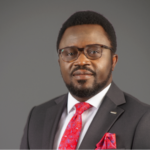In a bid to impact the local economy of a State, most developed and developing countries strive to attract foreign direct investment (“FDI”) with a view to bringing new opportunities for education, technology, and culture. Investors leverage this by establishing local companies (which may most times require acquisition of properties) and carrying on businesses in the host state.
Accordingly, by virtue of their investments in the host state, there exists a business relationship between an investor and the host state, which occasionally is prone to disputes.
Historically and under customary international law, the protection of investors in host states was the direct responsibility of the home state of the investor. Thus, where an investor’s right has been violated by the host state, the home state would usually espouse the claims of their national (investor) and settle the dispute with the host state in a diplomatic way. This type of protection is called Diplomatic protection.
However, over the years, some powerful states employed forceful mechanisms, including ‘gunboat diplomacy’ against host states in exploring diplomatic protection. This approach has created a political atmosphere that has metamorphosed investor-state disputes into state-state conflicts…



